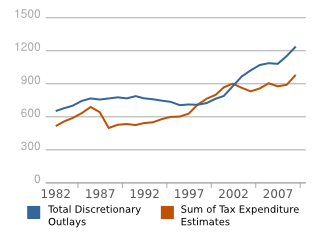Matthew Yglesias's Blog, page 2454
January 6, 2011
Fear The Grasstops Not The Grassroots

Jonathan Bernstein observes that John Boehner thinks the feisty right-wing of the GOP base can be bought off largely with symbolic measures:
I think it's an indication that Boehner believes that the Tea Partiers are going to be a fairly easy bunch to manage. Toss them some symbolic stuff, and then blame everything after that on Harry Reid and Barack Obama, and you've pretty much done what you need to do. Is he right? I'm not sure, but it's not a bad bet. That's partially because Boehner knows going in that he doesn't have the votes (in the Senate and the White House, that is) to actually fulfill the Tea Party agenda. If that ultimately is going to sink him — if activists won't, at the end of the day, accept a quarter of a loaf and cheer — then it doesn't really matter what Boehner does. If, however, Tea Party concerns are really just symbolic anyway, then it makes sense to address them with symbolism.
Ezra Klein comments that "It'll be really interesting to see how the tea party does — or doesn't — adapt to having allies in power."
I think it's really important not to engage in too much reification of "the tea party" in these kind of discussions. You don't need to endorse the view that the tea party phenomenon is some kind of astroturf to recognize that that there's a major grasstops element to the whole thing. Suppose there's some sellout that John Boehner wants to implement. Boehner recognizes that he needs to pair this with a symbolic but meaningless gesture. Now suppose he sits down in a room with Rupert Murdoch, Rush Limbaugh, Tom Donohue, and David Koch and persuades all three of those people that this is the right way to proceed. Then the next day, Boehner unleashes his symbolic gesture and his compromise, and the coverage of it on Fox News, The Rush Limbaugh Show, and the fox-affiliated radio shows is all positive. That alone gets you the three most popular talk radio shows, the television network, The Weekly Standard, a dose of influence at every single conservative think tank in America, and the important organizing efforts of Americans For Prosperity.
How far is a right-wing challenger going to get with those forces arrayed against him?
Not far. And the basic principles of elite signaling indicate that support among that group will lead to more support. It wouldn't be a smart move for Mike Huckabee or Sarah Palin or Mitt Romney to get on the wrong side of Rush & Fox. Jim DeMint might or might not find it useful to act as a rightwing defector from dealmaking, but he wouldn't actually get anywhere without conservative media to back him. In essence, coordinated action among a very small number of people can cut the oxygen off from the tea party fire any time they want to. So the question becomes not how "the tea party" will react, but how a relatively small number of influential conservative media figures will react.


Bowdlerizing the Constitution
I try not to get too invested in purely symbolic issues, but I agree with Adam Serwer that the House GOP's plan to read an edited version of the constitution involves very bad symbolism:
Republicans, intending to make a big symbolic show of their reading of the Constitution, have now taken a similarly sanitized approach to our founding document. Yesterday they announced that they will be leaving out the superceded text in their reading of the Constitution on the House floor this morning, avoiding the awkwardness of having to read aloud the "three fifths compromise," which counted slaves as only three-fifths of a person for the purposes of taxation and apportionment.
This is an absurd approach. It makes sense for congress to make a symbolic show of re-connecting with the foundational documents of the country. But one of the most important elements of the constitution is that it can be amended. Another crucial element is that it has been amended. Had it not been amended, the results would have been disastrous. In the future, we may amend it again. We might even want to consider the desirability of making it easier to amend. Just kind of sweeping this all under the rug transforms the gesture into a silly and inaccurate deification of a practical document written by human beings over the time for the purpose of conducting our affairs.


Why Progressives Find It Difficult to Take the "Fiscal Responsibility" Movement Seriously
Portrait of the Deficit Hawk as a Liberal Democrat from Massachusetts
Yesterday was the presentation of the which go to politicians that the fiscal responsibility movement likes:
Today, the non-partisan Fiscy Awards announced the 2011 Award recipients: Sen. Kent Conrad (D-ND), Rep. Paul Ryan (R-WI) and Gov. Mitch Daniels (R-IN). The recipients were selected by the Fiscy Awards Committee for their notable fiscal leadership in fiscal year 2010.
The Awards Committee comprised of the Honorable David M. Walker (Comeback America Initiative); Maya MacGuineas (Committee for a Responsible Federal Budget); and Robert Bixby (Concord Coalition) will present the Fiscy Awards to the recipients at an open-press event on Wednesday, January 5, 2011 at 6:45 p.m. EST at the Newseum in Washington, D.C.
The Award recipients were chosen for their frequent efforts to promote fiscal discipline and leadership to restore fiscal health.
Now let's ask Maya MacGuineas' Committee for a Responsible Federal Budget about the new House rules promoted by Rep Paul Ryan (PDF):
One major concern relates to the changes in PAYGO budget rules. Replacing the two-sided PAYGO rule with a one‐sided CUTGO rule will not only make it harder to offset legislation, but also exempt potentially budget‐busting tax cuts from any discipline. The one‐sided focus on spending also could result in the further proliferation of tax expenditures. As the Bowles‐Simpson commission has highlighted, tax expenditures are simply spending by another name and should not be exempt from scrutiny.
We have a similar concern with the new budget reconciliation rules, which will no longer allow budget reconciliation to increase spending but will permit it to be used for tax cuts which increase the deficit. This is a step backward that would allow for a return to the process that was used to enact the tax cuts in 2001 and 2003 that continue to contribute to our fiscal problems. The special procedures for budget reconciliation legislation are intended to make it easier for Congress to enact the tough choices necessary to reduce the deficit, and should not be used for politically easy and fiscally irresponsible legislation.
Changes to statutory PAYGO (which differs from PAYGO rules both in substance and legal authority) also are disappointing. Although internal budget rules cannot change the PAYGO law directly, they are able to indirectly weaken the implementation of the law by allowing the Chairman of the Budget Committee to exclude the costs of certain policies from the cost estimates for statutory PAYGO.
In particular, the rules allow the Chairman to exempt the extension of all the 2001 and 2003 tax cuts (including those for taxpayers with incomes above $250,000), the more generous estate tax relief enacted in the tax cut deal at the end of 2010, repeal of the health care legislation enacted last year, legislation providing small business tax relief, and trade agreements from having to be offset. CRFB was critical of the exemptions for extension of certain policies when statutory PAYGO was enacted, and strongly opposes any changes to further weaken PAYGO.
So under the circumstances, where's the "fiscy" award for a progressive icon like Barney Frank or Nancy Pelosi? Do Frank and Pelosi uniformly support the goal of deficit reduction above all else? Of course not. But nobody does. Not Paul Ryan and not Kent Conrad and not them either. But Frank and Pelosi both did support PAYGO rules that are stronger than Ryan's. They supported budget reconciliation rules that are stronger than Ryan's. They backed deficit-reducing early withdrawals of US military forces from Iraq. Unlike Ryan, they backed the deficit-reducing American Climate and Energy Security bill. Unlike Ryan, they backed the deficit-reducing Affordable Care Act. Unlike Ryan, they backed the deficit reducing Dodd-Frank Wall Street regulation bill. Unlike Ryan, they backed the deficit-reducing DREAM Act. And unlike Ryan, Representative Frank has led the charge for lower defense spending.
So where's Frank's award?


The Welfare State For the Rich
Pew has a cool new tax expenditures database tool that I recommend you examine. As a preview, here's the exploration of the scope and importance of these measures:

I recommend Jacob Hacker's The Divided Welfare State for a good high-powered look at some of the implications of this. But the quick version is offered by Ezra Klein who says "What's interesting about tax expenditures, I think, is that they're basically the welfare state for the middle class, cleverly arranged such that they don't look like the welfare state for the middle class.
I would say that what's even more interesting about these tax expenditures is that they actually do much more to benefit the rich than to benefit the middle class. Major tax deductions like the one for employer-provided health care or for home mortgage interest payments are, yes, big-time benefits for middle class Americans. But since the income tax code has a progressive rate structure, the really big wins from these cuts go to the folks with the highest incomes. This is one reason why I'm not in love with the politics of "we'll only raise taxes on rich people." There are many tax measures that would have a progressive distributional impact in the aggregate that would nevertheless involve some non-rich people paying somewhat higher taxes.
At any rate, the whole setup is . . . clever. A program like Social Security essentially yokes the interests of poor Americans to those of the middle class. A program like the health care tax break instead yokes the interests of the middle class to the interests of the rich.


European Monetary Paralysis

Nick Rowe explains that the Eurozone's woes go beyond inadequate labor market and fiscal integration, it's not really even sufficient monetary policy integration:
But the lender of last resort matters more. The US has an effective lender of last resort. The Fed has the political authority to print as many US dollars as are needed. The only effective limits are the risks of inflation and moral hazard. The Eurozone does not have an effective lender of last resort. The individual Eurozone countries do not have their own central banks. The ECB lacks the political authority to print as many Euros as are needed.
Suppose you abolished the US Federal government. So you needed all 50 State governments to agree before the Fed could act as lender of last resort to one of those State governments. And suppose some of those US State governments had as much debt as Greece, or were bailing out their banks like Ireland. Think all 50 State governments would agree on anything? I don't. (And they all at least speak the same language, and really do all think of themselves as part of the same nation). Think it would matter? I do.
Tim Fernholz's five positive economic signs for 2011 is fairly persuasive to me, but the big problem is that there are a lot of possibility for new negative shocks. And the shocks coming from Europe, in particular, are potentially enormous. And I'm not at confident that we'll respond adequately if shocks do come.


January 5, 2011
Endgame
Things that weren't very nice:
— Jonathan Strong tries to take down Jane Mayer, fails.
— Given widespread hostility to almost all specific proposals for change, it's strange how few people will explicitly embrace the status quo.
— Bernard Finel wants more links.
— Airpower, COIN, and interservice rivalry.
— More detailed version of the argument about robots and taxing natural resources.
For the House GOP's return to power with a social democratic twist, it's the Raveonettes' cover of "My Boyfriend's Back".


Wednesday Meta-Ethics Blogging

Dev James has a meta-ethical query:
I would like a post discussing the tension between your anti-realist views in meta-ethics (or your quasi-realist views) and your ethical claims that are said as if there are right and wrong answers to ethical questions.
I don't think there's any tension here. Only misguided realists think there's a tension. And I'd say that regular participation in normative controversies helps indicate how beside the point realist efforts to motivate their favorite questions are. I have a Wittgensteinian take on this.
Suppose I say, "DC's barber licensing rules are bad." You ask, what do you mean by that? Well, they reduce competition in the barbering field, leading to higher prices and worse service for customers. They reduce tax revenues and employment opportunities. They're, you know, bad. No, no, no you say, what do you mean "the rules are bad?" Maybe you mean to ask if I think licensing is bad in principle, or it's just that the implementation is bad. So I explain that if you assume an omniscient and benevolent regulator, you can posit a more optimal outcome than what the market provides, but in the real world this kind of commission is bound to become a playground for special interest capture.
Godamnit, I want you to tell me what it means for a law to be a bad law.
It's bad. I disagree with it. I think its consequences don't serve the public interest. I think it ought to be repealed. Its continuation causes avoidable suffering. Well which is it, huh? Huh? See? No! I refuse to accept your contention that the law should be repealed until you give an account of what "should" means.
At this juncture, I think, you're just being an jerk and there's nothing more to say. But in reality, this never happens! Just show the fly out of the bottle.


Understanding the State/Local Budget Crunch

(cc photo by Justin Brockie)
From the California section of N+1′s year in review:
Without any pressure telling them otherwise, Democrats, faced with an ineluctable revenue crisis, are going to go with what has been their signature political move for decades: conceding. The point is, it hardly matters whether you cut the budget with fat Republican enthusiasm, like Chris Christie in New Jersey, or gaunt Democratic humility, as Jerry Brown has promised. What effect this coming evisceration of social services and mass layoff of public servants will have on the makeup of the country is incalculable. That it will only contribute to the deep recession, which supposedly ended several months ago, is axiomatic.
I think the spirit here is right, but the details are wrong. The thing about state governments is that they need to balance their budgets. Consequently, it actually matters a great deal whether you implement cuts with Christie-like enthusiasm or not. Christie has actually been lowering taxes on the richest New Jerseyites, thus increasing the need for cuts. Conversely, while it's quite true that state budget cuts amidst a recession impair recovery, it's also true that state tax hikes amidst a recession impair recovery. The only solution to the macroeconomic problem of state/local budget cuts is for congress to appropriate funds.
This is a really big problem! Congress should appropriate funds. What's more, congress should—but gives no indication of giving any consideration whatsoever to doing so—be looking at some way to reduce the systematic tendency of state and local government to engage in pro-cyclical budgeting. So it's really two big related problems, and their scope is much wider than the ideological back-and-forth about the optimal size of the state/local public sector.


14th Amendment History
A legitimate professional historian writes:
It's not even clear Scalia has the legislative history of the 14th Amendment right. Rep. Benjamin Butler was present at the creation, and he believed the 14th Am. had the potential to guarantee equal protection for female citizens. Same with Chief Justice Salmon Chase, who affirmed a woman's equal right to practice law in his 1873 dissent in Bradwell v. Illinois. Chase was not only closer than his fellow justices to the men who wrote the Amendment, he was much more deeply involved in the debates of the Reconstruction period.
I'd go stronger. Scalia is clearly mistaken about the legislative history. He said "Nobody ever thought that that's what it meant. Nobody ever voted for that." Clearly at least some people thought that.
But this is obviously the problem with trying to ascertain meaning with reference to the subjective beliefs of multiple collective entities. For an amendment to be ratified a ton of people have to vote for it and they have different things in their heads.


Jeff Sessions and Human Trafficking
I've always had a soft spot for bashing Jeff Sessions, but I never thought I'd get a target this juicy:
Recently, the U.S. Senate was moments away from passing landmark legislation that would have provided critical care and shelter to child sex trafficking victims in America. The Domestic Minor Sex Trafficking Deterrence and Victims Support Act of 2010, bi-partisan legislation introduced by Senators Wyden (D-OR) and Cornyn (R-TX), had already passed the Senate unanimously and the House with minor changes. But when it came time for the Senate to approve those changes and give hope to thousands of trafficked kids, one man stood in the way: Senator Jeffrey Sessions of Alabama. Why did Senator Sessions vote for child sex trafficking?
My guess was "procedural BS related to the deficit" which would have been pretty loathsome, but the actual answer is much worse. Apparently Sessions flip-flopped on the merits at the behest of the Concerned Women of America who feel it should be possible to legally prosecute children forced into prostitution. After all, they're prostitutes and prostitution is illegal. My understanding is that some real cranks won in 2010, but it'll be hard for anyone to capture the "America's Worst Senator" title away from Sessions.


Matthew Yglesias's Blog
- Matthew Yglesias's profile
- 72 followers




